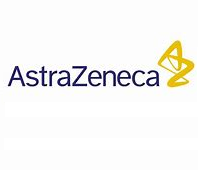fiercepharmaMay 06, 2019
Tag: Medicine
For the first time, AstraZeneca's top-selling medicine isn't a stomach drug or a respiratory inhaler or any other primary care med. It's a cancer drug.

That would be Tagrisso, the EGFR inhibitor for lung cancer, which zoomed past AstraZeneca's former top-seller, Symbicort. Tagrisso jumped 86% year over year to $630 million in first-quarter sales, while Symbicort, the asthma and COPD therapy, sank 8% to $585 million.
Tagrisso's ascendance was just part of AstraZeneca's outsized performance in oncology for the quarter—and a signal that the company's cancer-fueled "return to growth" is right on track.
After nearly a decade of decline on patent losses, the British drugmaker started posting quarterly sales growth in the third quarter of last year. It did so again this time around, aided by a whopping 59% growth in oncology sales to $1.89 billion. And CEO Pascal Soriot again sketched out future top-line boosts, thanks to its cancer drugs and burgeoning China business.
Tagrisso continues to benefit from its 2018 approval in newly diagnosed non-small cell lung cancer (NSCLC) patients, and, despite U.S. destocking, its first-quarter revenue beat analyst expectations, Jefferies analysts said Friday. And Iressa, Tagrisso’s predecessor, delivered a surprising 13% beat: Tagrisso's expansion has squeezed Iressa to near-nonexistent sales in the U.S., but emerging markets—led by China—made up the gap. The drug delivered $134 million on the quarter.
Meanwhile, Lynparza "continues to cement itself as the leading PARP inhibitor with the first-line ovarian cancer launch underway," Soriot said on a Friday briefing with reporters. Lynparza, which AZ now shares with Merck, doubled its sales to $228 million for the period.
And the company's immuno-oncology drug Imfinzi kept growing in NSCLC, though its quarterly sales of $295 million still fell behind Roche’s rival PD-L1 Tecentriq—and even further from the blockbuster PD-1s Keytruda and Opdivo from Merck and Bristol-Myers Squibb, respectively. The company pared back its Imfinzi development work in the first quarter, too; it canned a phase 1 combining Imfinzi with Iressa in NSCLC, and a phase 2 testing Imfinzi alongside its investigational PD-1, MEDI0680, in solid tumors.
But cancer is just one pillar of AstraZeneca's growth plans. In the words of Wolfe Research analyst Tim Anderson, AstraZeneca's emerging markets business is "doing great," and China was the centerpiece of that in the quarter. Sales in the country jumped 28% at constant currencies to $1.24 billion. That's 23% of AstraZeneca's top line, Soriot pointed out. And it pushed AZ to the top spot by sales in China, where it pushed aside the longtime No. 1, Pfizer.
AstraZeneca's growth in China isn't likely to hit such heights later this year, though, Soriot warned. The company expects 15% to 20% increases moving forward, rather than the 25% to 30% it’s been delivering lately. The downshift stems partly from a bulk purchase scheme the Chinese government is testing for 11 cities. The so-called "4+7" procurement plan allocates a large share of public hospitals’ drug demand to the winning bidder in exchange for steep discounts.
For drugmakers, that means large amounts of guaranteed sales and lower marketing expenses, provided they win the contract. If not, the sales opportunity dwindles.
While Iressa made the cut—and Soriot expects volume growth from that deal will be substantial—AZ’s statin drug Crestor lost out to a locally made generic. Its first-quarter sales show it, too; China dealt a 6% drop in Crestor sales, to $137 million, "partly a result of Crestor being unsuccessful in the ‘4+7’ pilot tender scheme," the company said.
All told, AZ’s first-quarter sales gained 14% at constant currencies, to $5.47 billion, and beat consensus by 3%, Jefferies said.
And now, the company can rest easier—and spend more time thinking ahead. "This means we have now started to focus on the next phase of growth toward the middle of the 2020s," Soriot said. And AZ's recent $6.9 billion deal with Daiichi Sankyo is very much part of it.
Unveiled in March, the deal gives AstraZeneca rights to the Japanese company’s lead antibody-drug conjugate, trastuzumab deruxtecan (DS-8201), for a variety of cancer types. Soriot dubbed the drug a "truly transformative" therapy, and "it is the reason we made the exception of using long-term financing in the form of an equity issuance to bring it into our portfolio."
In phase 1 in HER2-positive breast cancer, DS-8201 showed 20.7 months of response with an overall response rate of 59.5%, and it achieved that result in patients who've been treated repeatedly already—a median of seven prior lines of treatment, in fact.
To see that kind of response "gives us hope as we move into even earlier lines of therapy that we’ll see even improving outcomes," AZ’s commercial oncology chief Dave Fredrickson said on the first-quarter call.
HER2-positive disease only constitutes about 20% of breast cancer cases. But there were early signs that DS-8201 might work in HER2-low patients, a market three times that size, Fredrickson said. If successful, DS-8201 could be the first therapy directed specifically toward those patients. Plus, it could open up AZ’s opportunity in other tumor types such as lung, gastric and colorectal cancers, where HER2 plays a role.
Besides DS-8201, AZ's near-term pipeline focus is on anemia drug roxadustat, which already nabbed its first approval in China. Last December, AZ said its global phase 3 trials in non-dialysis and dialysis-dependent patients have met their primary endpoints.
"Focus is on the pooled cardiovascular safety analysis due in the near future, given this is a new class of HIF inhibitors, with a clean profile a must to drive broader pre-dialysis use," Jefferies analyst Peter Welford wrote in a Friday note to clients. His team projects the drug could reach $2 billion in peak global sales.
Register as Visitor to CPhI China 2019!

-----------------------------------------------------------------------
Editor's Note:
To apply for becoming a contributor of En-CPhI.cn,
welcome to send your CV and sample works to us,
Email: Julia.Zhang@ubmsinoexpo.com.


Contact Us
Tel: (+86) 400 610 1188
WhatsApp/Telegram/Wechat: +86 13621645194
Follow Us:




 Pharma Sources Insight January 2025
Pharma Sources Insight January 2025


